How to debug UI issues for archival cases in applications
This document will talk about how to debug UI issues for archival cases in application layer.
OOTB, archival cases are supported to open in Theme cosmos/UI kit built on applications.
Checklist to find the root cause for ui issues in archived harness:
- Check the issue is reproducible in inhouse instance/environment.
- Check on which theme the application is built on – UI kit/ThemeCosmos/PegaRules
- Check the rules that is causing the issue has been overridden in the application layer
- Check the clipboard if the values are correctly populated? If not then check the data pages used to retrieve the values are returning the values
- Check the UI if the values or information is shown in UI? If not, then check the clipboard if the values are present. If values are present, then check the section that is causing the issue to see whether it has been correctly configured.
- If the OOTB theme(UIkit/ThemeCosmos) rules are causing the issue then compare the rule present in PegaEndUser UI and see the changes
- Check if these data pages are properly configured in section to show the correct data for archived data’s - D_pzArchivedCaseFeed, D_pzArchivedCaseAttachments, D_pzArchivedCaseAudit
How to debug if Archival case history is not showing in UI?
In both UIkit and theme cosmos themes, the section used to show the data in UI is “pyArchivedCaseAudit”. Make sure this section has been called in the archived harness
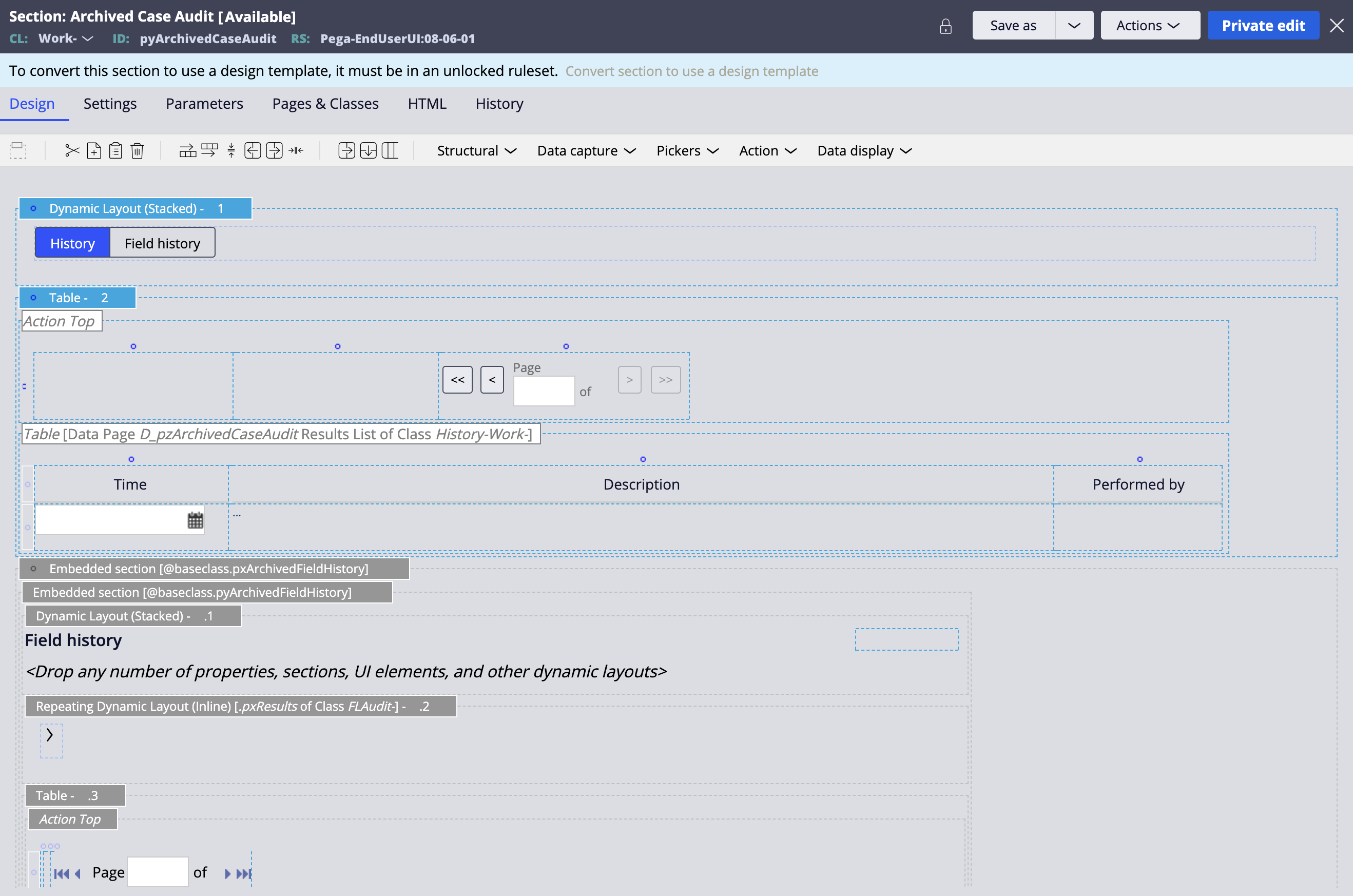
How to debug if Archival case pulse is not showing in UI?
For UI kit applications, check the “pyArchivedCaseMain” section is configured with the correct pulse feeds as per screenshot
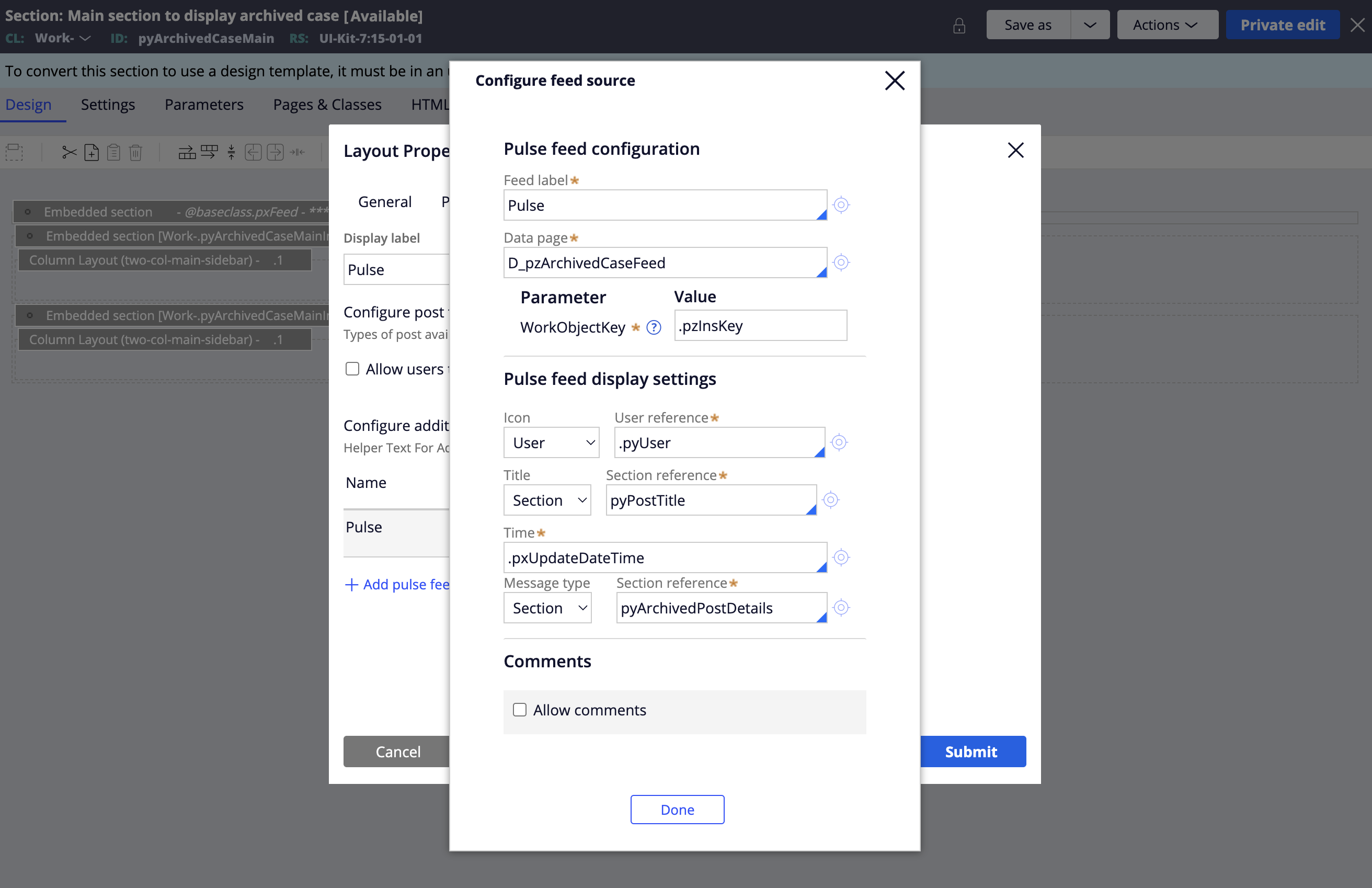
For theme cosmos application
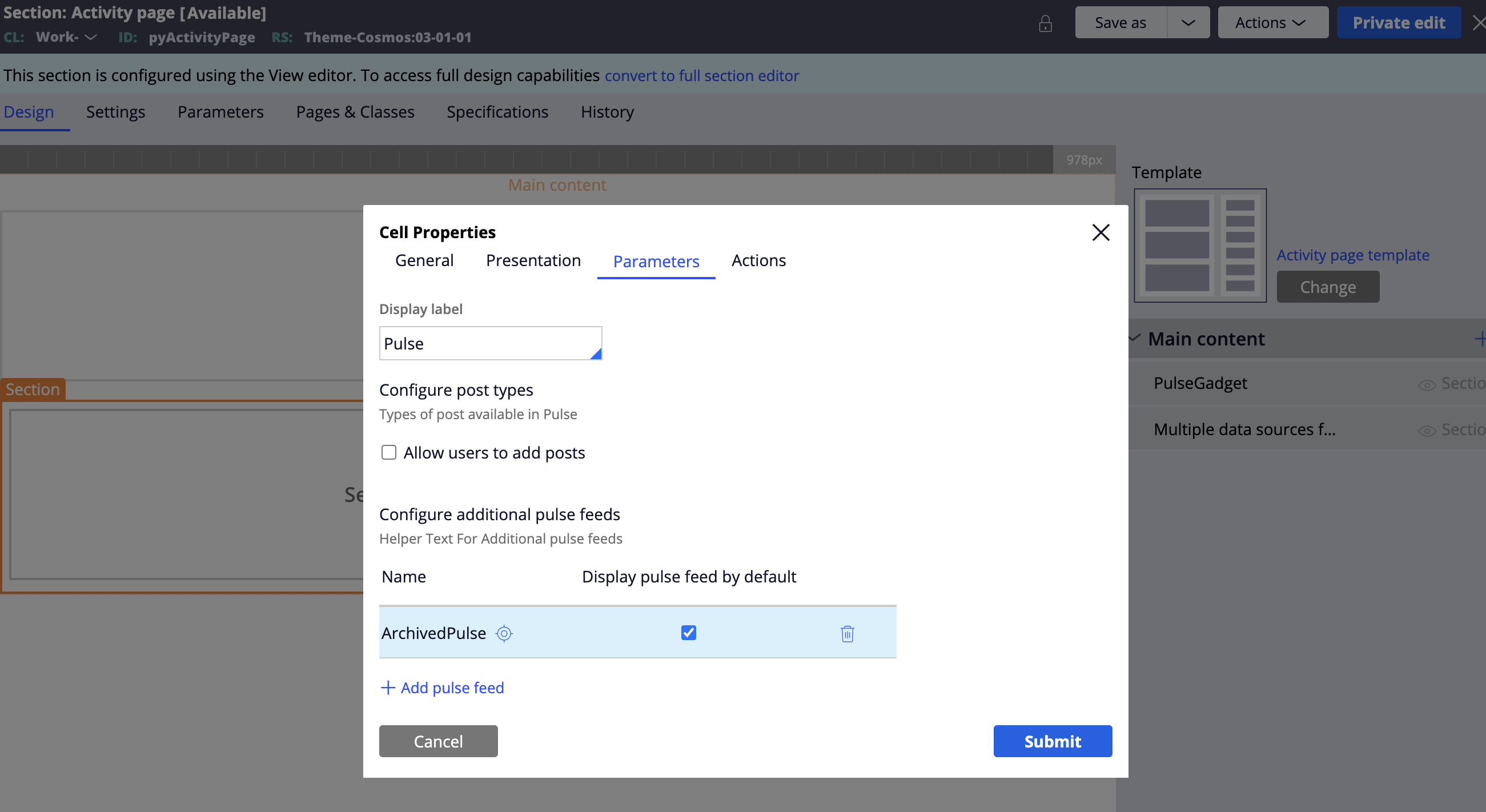
How to debug if Archival case attachments is not showing in UI?
For UI kit applications, check the “pyArchivedCaseAttachments” section is configured with the correct datapage as per screenshot
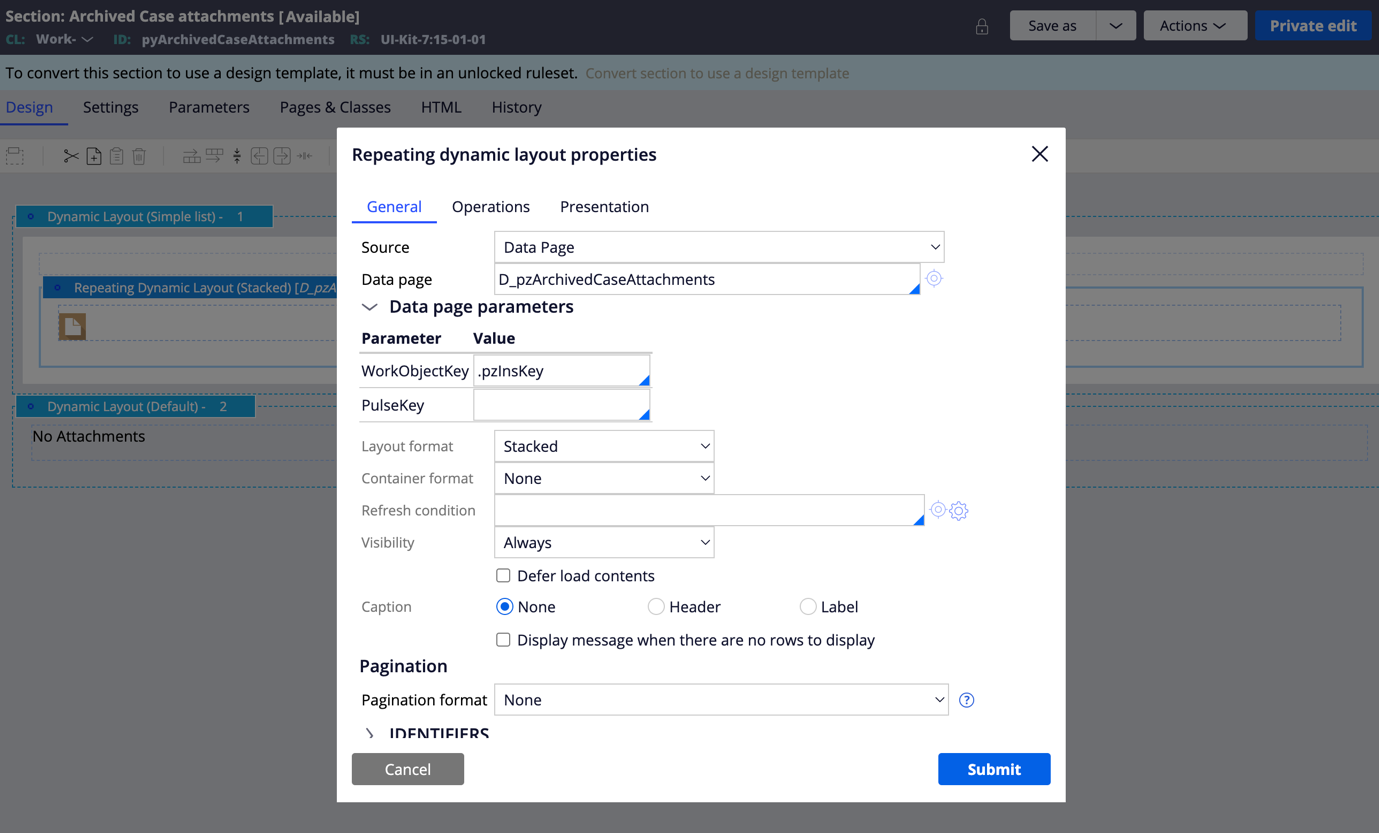
For Theme Cosmos,
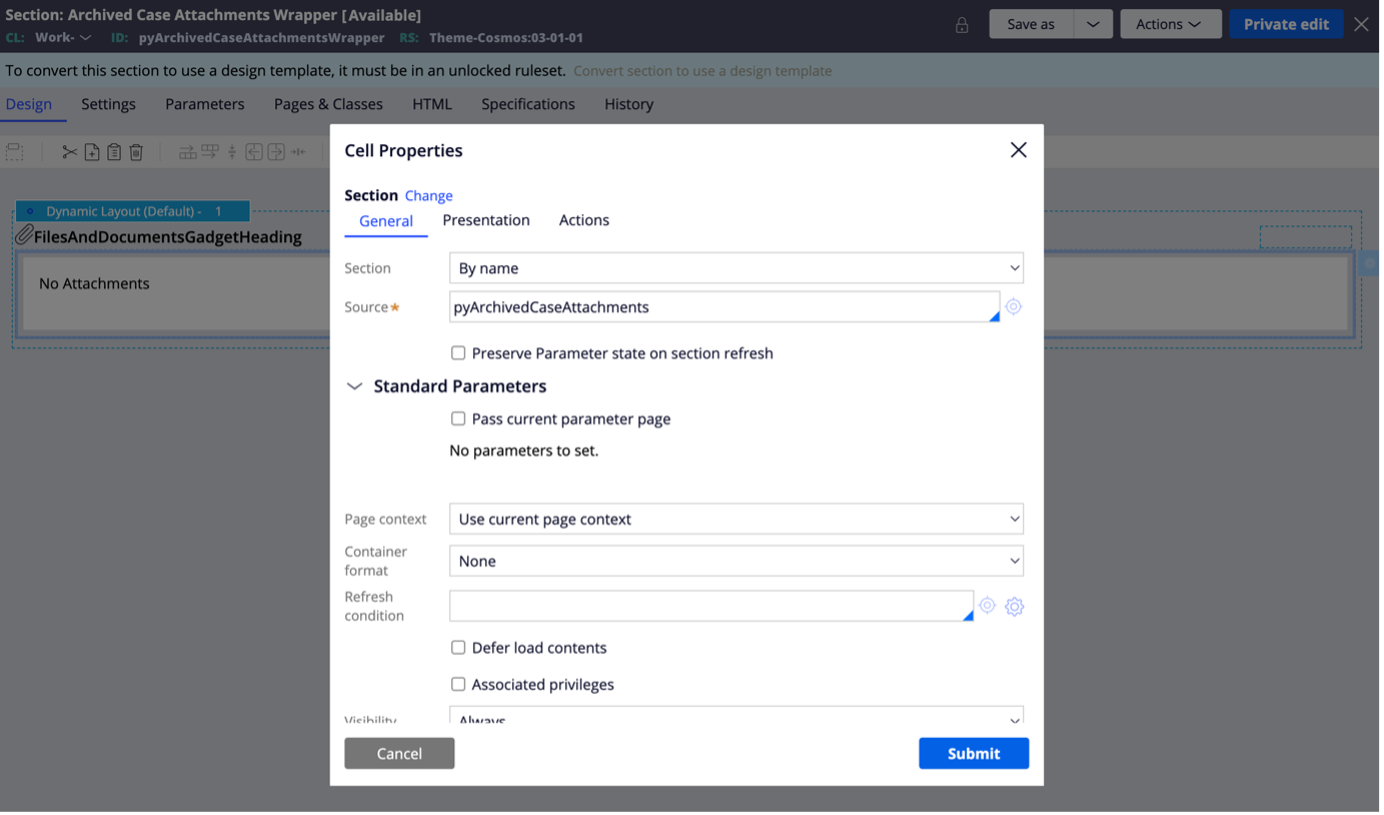
Also, please follow this document on https://support.pega.com/discussion/how-implementcustomize-archival-cases-application-layer-built-theme-cosmos
